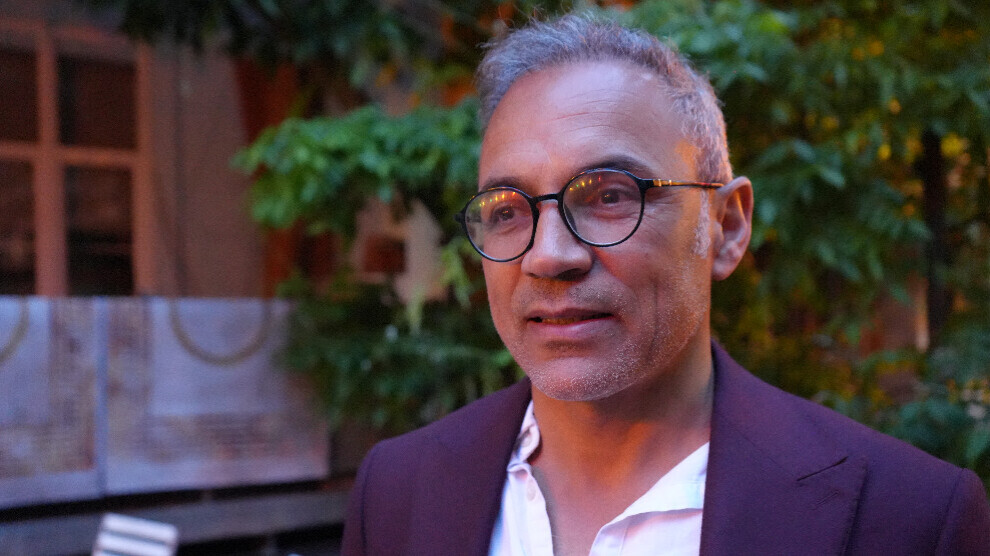Screening of 'The Life of a Snowflake' by Kazım Öz in Basel
The film 'The Life of a Snowflake', written, directed, and produced by Kurdish filmmaker Kazım Öz in 2022, was screened at the Kino Neues cinema in the city of Basel.
The film 'The Life of a Snowflake', written, directed, and produced by Kurdish filmmaker Kazım Öz in 2022, was screened at the Kino Neues cinema in the city of Basel.

After screenings in Turkey, 'The Life of a Snowflake', written, directed, and produced by Kurdish filmmaker Kazım Öz, began its European screenings.
The film stars Sema Gültekin (Miase), Cezmi Baskın (Nejat), and Münir Can Cindoruk (Azad), and was shown in Basel.
The film touches on Turkey's social realities through a love story between two young people from different ethnic backgrounds. After the screening, the director spoke about the challenges of making independent films in Turkey and drew attention to censorship.
Since 1999, Kazım Öz has made seven feature films and two short/documentary films. After the screening, Öz spoke to ANF.
Öz said that the Turkish government has "taken significant control of the art scene over the past 10–15 years," adding: "It has economically tied artists, their productions, and their work to itself, trying to tame them politically and culturally. And I think it has largely succeeded. But it applies harsher measures against those individuals, groups, and works that do not follow that line."
Kazım Öz is known for his oppositional stance as a filmmaker. Some scenes in his film Zer were censored. His comedy Oyuna Geldik, about a mayor’s life, was banned. Emphasizing the need for continuous resistance against censorship in Turkey, Öz said: "My films are always subject to this kind of censorship."
He stressed that filmmaking is not easy, adding: "I currently have four projects on my desk. I'm thinking about which one to make. That will depend somewhat on the circumstances. I’m looking for a producer. That will determine which one moves forward."
Öz hopes that a new process initiated in Imralı to resolve the Kurdish question and democratize Turkey will also positively influence cinema. "If the process succeeds, or rather, if a new process begins, it will certainly have a positive impact on the field of cinema. But of course, it seems like it will be a very painful process," he said.
He added: "We must strive to make films under any condition. We must find the key to filmmaking in every context, whether under fascism, democracy, or socialism. We must think about how to make films under all these conditions."